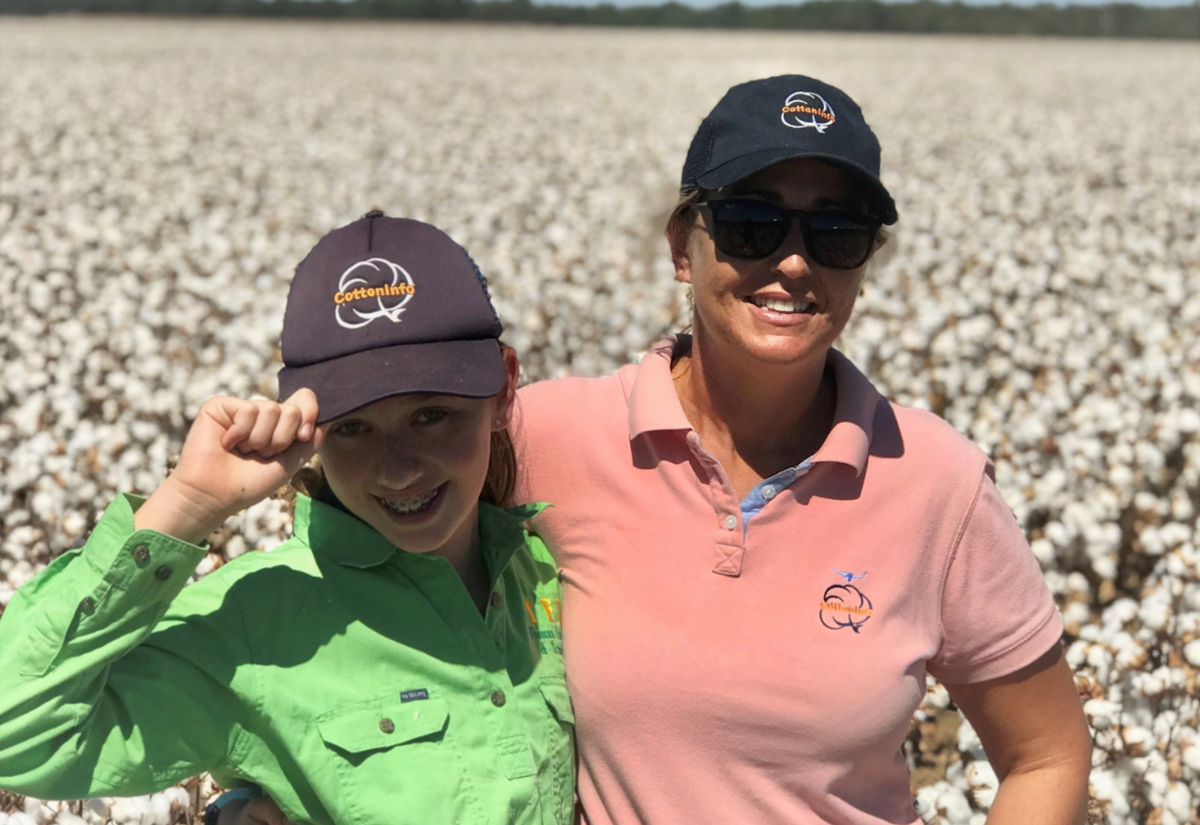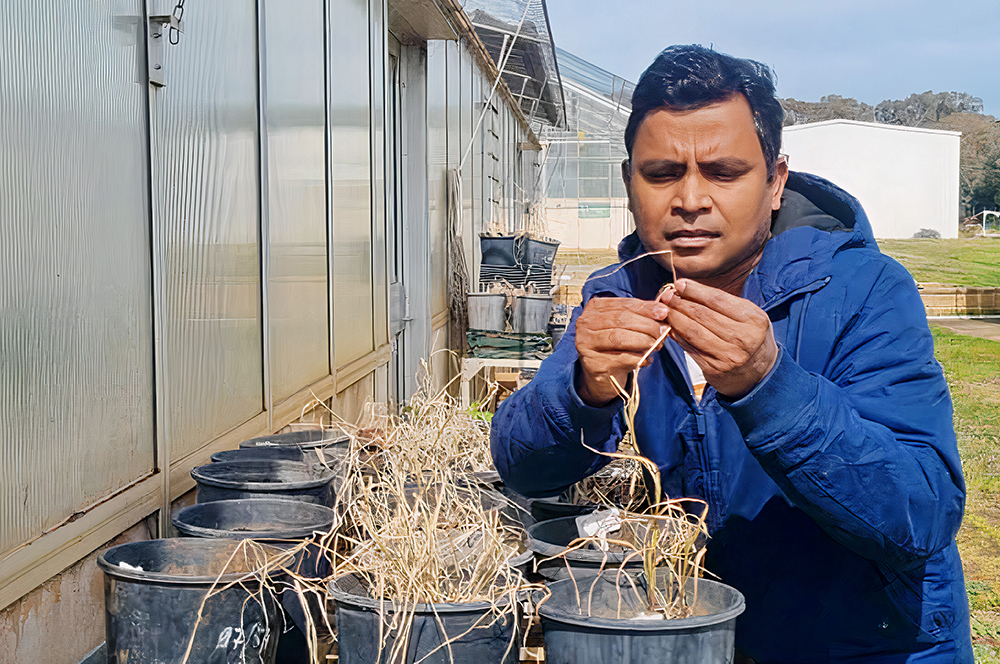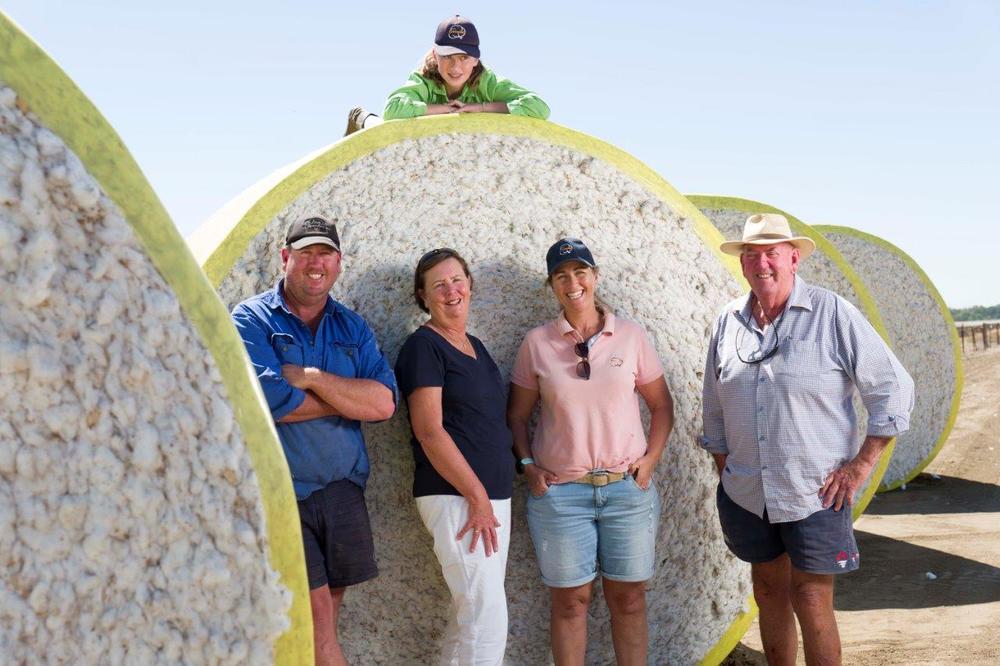Cotton growers praise new weed management research
Oliver Brown
12 October 2021, 6:15 AM
 Warren cotton grower Amanda Thomas, pictured here with daughter Airlie, says new government research on awnless barnyard grass weeds demonstrates the need to not stick with one method of weed management.
Warren cotton grower Amanda Thomas, pictured here with daughter Airlie, says new government research on awnless barnyard grass weeds demonstrates the need to not stick with one method of weed management.A Warren-based cotton grower has welcomed new state government research intended to give growers a leg up when it comes to weed management while seeding the latest crop.
Earlier this month, researchers from the government and the Cotton Research and Development Corporation was released showing the importance of balancing different eradication methods when dealing with weeds resistant to herbicides like glyphosate.
Government researcher Md Asaduzzaman said the research suggested that when glyphosate was absent in a field, glyphosate-resistant awnless barnyard grass weeds were easier to manage compared to weeds more susceptible to the herbicide in the same paddock.
“But when glyphosate is used, the glyphosate-resistant plants may eventually dominate the field, favouring the selection of resistant plants over those which have not developed resistance,” Dr Asaduzzaman said.
“Glyphosate is an important herbicide in Australian agricultural production systems and new management practices are needed in cotton IWM systems.”

Government researcher Dr Md Asaduzzaman says new research to better manage awnless barnyard grass will benefit cotton growers. Image courtesy of NSW Government.
According to Warren farmer Amanda Thomas, who is also treasurer for the Macquarie Cotton Growers Association, the government findings have a lot of implications for cotton growers in regional NSW.
Ms Thomas said the Macquarie region exports thousands of hectares of cotton crop every year, depending on annual irrigation allocations, making weed management strategies very important.
"As cotton growers we strive to make sure it’s the cotton plants that get the valuable nutrients and water that we apply to our crops, to be able to make sure this happens we try and control the weeds early when they are small and easy to kill," Ms Thomas said.
"Resistance to glyphosate is something that all farmers are interested in and aware of as no one wants to throw money away on a spray that won't work on the target weeds because they are resistant.
"Having an integrated weed management approach is nothing new to our farmers and its research like this that gives us the knowledge on how to control weeds like awnless barnyard grass.
"This is problem weed that can go from having the odd scattered plant to real problem patches in a few seasons due to their prolific seeding nature.
While a lot of cotton growers use glyphosate to manage different kinds of weeds, Ms Thomas said her family's cotton farm use a variety of different management strategies, including rotating between different herbicide groups, to ensure weeds don't build up resistances too quickly.

Amanda Thomas says her family farm uses a variety of management strategies to stay on top of weeds in their cotton crop. Image courtesy of Amanda Thomas.
"Camera sprays have been a game changer in the drought as you are not just blanket spraying across the farm but targeting particular weeds," she said.
"The idea of just relying on glyphosate is a fool’s paradise and that’s why as industry we invest in the research that promotes things like the 2 + 2 & 0 on both our grass and broadleaf weeds.
"This means we aim to do two non-gly tactics in crop, two non-gly during the summer fallow and always remove any survivors (0)."
Ms Thomas also said weed management was an "all year round approach" and was therefore research like this was constantly ongoing to better inform growers across the state.
"This research confirms that going back to the pre-emergent herbicides and using residual herbicides really takes the pressure of glyphosate," he said.
"It's great that the researchers stay ahead of the problems for us and develop time-efficient testing so we can be aware if we have a problem before it goes to ‘viral’ on the farm.
"We can't monitor what we can't measure and this research is a vital monitoring tool and is kind of like the ‘canary in the coal mine’ if you like."